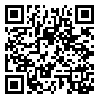BibTeX | RIS | EndNote | Medlars | ProCite | Reference Manager | RefWorks
Send citation to:
URL: http://jemr.khu.ac.ir/article-1-1330-en.html
2- University of BuAli Sina
Over past decades there have been conflicting views on whether raising the minimum wage increases inflation. This study updates and expands earlier research into this subject and fills a void in the empirical literature by studying that the impacts of the minimum wage on inflation could be altered in the different economic situations. In framework of cost push inflation theoretical background, the direct and indirect effects of minimum wage changes on wage and inflation can be seen as taking place in several stages. The overall wage inflation outcome can, of course, also depend on the position of the economy in a particular stage of the business cycle. To examine this hypothesis, we used a Markov regime-switching model to study the impact of minimum wage increases on inflation over expansion or recession situations in Iran during the 1973- 2013 period. The comparison between a single-regime and regime shifting models provides the similar results for the sample period. The most important finding of this study is that there is no significant impact of minimum wage increases on inflation regardless of economic situations. However, the results show that the inflation shock positively impacts minimum wage in both models. In sum, our results provide a significant contribution to the empirical literature by verifying that the effectiveness of minimum wage on inflation is not dependent on the business cycle economic situation. The main policy implication for Iran's economy deriving from this study is that the minimum wages should be increased to compensate wage workers for real-wage decrease caused by inflation, without any concern about its inflationary effects.
Received: 2015/12/5 | Accepted: 2017/01/3 | Published: 2017/03/1
| Rights and permissions | |
 | This work is licensed under a Creative Commons Attribution-NonCommercial 4.0 International License. |








